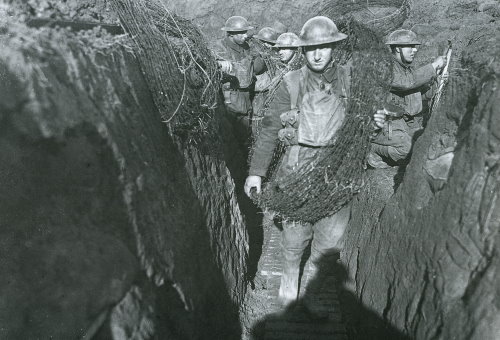Letter
Captain Rowland Fielding to his wife, 14 December 1916.
I can never express in writing what I feel about the men in the trenches and nobody who has
not seen them can ever understand. According to the present routine, we stay in the front
line eight days and nights, then go out for the same period. Each company spends four days
and four nights in the fire-trench before being relieved. The men are practically without rest.
They are wet through much of the time. They are shelled and trench-mortared. They may
not be hit, but they are kept in a perpetual state of unrest and strain. They work all night and
every night, and a good part of each day, digging and filling sandbags, and repairing the
breeches in the breastworks, that is when they are not on sentry. The temperature is icy.
They have not even a blanket. The last two days it has been snowing. They cannot move
more than a few feet from their posts. Therefore, except when they are actually digging, they
cannot keep themselves warm by exercise and when they try to sleep they freeze. At present
they are getting a tablespoon of rum to console them, once in three days.
How long are the men in the actual fire-trench? Why do you suppose it is not more?
(Requires Sentence)
What is Captain Fielding's impression of his men?
(Requires Sentence)
Describe what the men are doing when not fighting.
(Requires Sentence)

